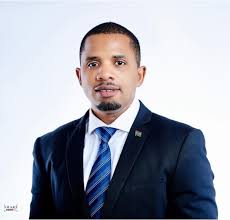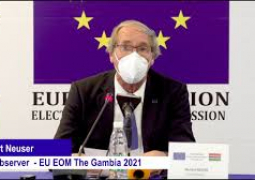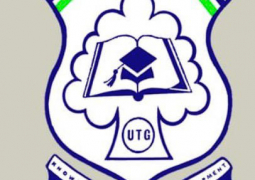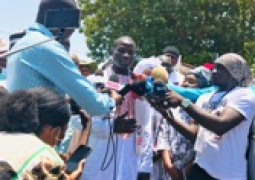
“If corruption is our only problem, then there is no problem,” he said. “The critic didn’t say our health sector is failing. He didn’t say education is collapsing. He didn’t say farmers are abandoned. He didn’t say poverty is killing Gambians. He only pointed to corruption. If that is the only problem, then there is no problem because government has taken serious steps.”
Dr Ceesay addressed criticism surrounding the long-delayed Anti-Corruption Bill, particularly claims that the government had pre-selected commission members before passage of the bill.
“That itself is not possible,” he stated. “The Act sets the criteria for eligibility. You cannot start nominating when you don’t even know who is legally eligible.”
He described the recruitment process as transparent and legally compliant. “We advertised publicly. Twenty-nine Gambians applied. A vetting committee made recommendations, Cabinet reviewed them, and now the President will forward nominees to the National Assembly for confirmation. This is a process driven by the law, not by political shortcuts.”
Ceesay highlighted a series of reforms aimed at curbing corruption, including: The Public Finance Management Bill currently before the National Assembly; establishment of an independent SOE Commission; launch of an e-procurement platform to reduce corruption in public contracts; digitisation of GRA systems and empowerment of the National Audit Office to trigger prosecutions based on its findings.
He also cited improvements in international rankings to support his claims. “In 2017, The Gambia scored 30 out of 100 on the Corruption Perception Index, ranking 138th globally. Today we score 38, ranking 96th. That’s 34 places up. These are not stories we are telling—they are facts.”
When questioned about the swift prosecution of a fatal FGM case compared to the delayed response to the Acute Kidney Injury (AKI) scandal that claimed over 60 children’s lives, Ceesay responded: “That case is in court,” he said, adding that the government is implementing parliamentary recommendations from the AKI inquiry.
Ceesay also addressed the arrests of protesters opposing PURA’s controversial minimum data tariff. While he maintained that “the country is a country of laws” and that protest permits are required, listeners argued that the Constitution guarantees peaceful assembly without police clearance.
“That’s why we have the courts,” Ceesay replied. “People interpret the law differently, but the courts will decide.”
On the issue of rising internet costs, the minister declined to directly endorse PURA’s decision to halt the price war among mobile operators. Instead, he defended the regulator as a “competent authority” balancing consumer interest, government revenue, and telecom sustainability.
Asked whether Gamtel would be privatised like Senegal’s Sonatel, Ceesay revealed that partial privatisation is under consideration but offered no timeline.





